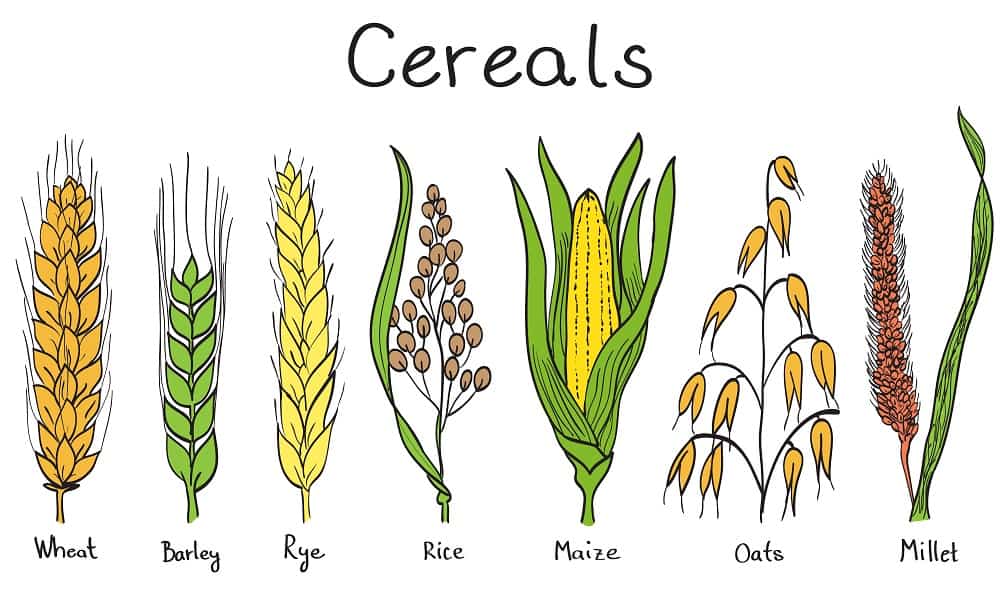Cereal, also commonly known as breakfast cereal, is a breakfast staple across the globe. There is a wide variety of cereals available today, but they are conventionally made from cereal grains such as rice, corn, barley, rye, and so on. Touted as a part of a balanced breakfast diet, cereals are typically enriched with high amounts of nutrition.
Unfortunately, many breakfast cereal brands are probably not vegan. The primary reason why these cereals are not appropriate for vegan lifestyles is due to vitamin D fortification. Since vitamin D is predominantly produced through non-vegan means, then vitamin-D-fortified cereals cannot be vegan as well. Aside from vitamin D, there are also other ingredients that vegans might want to look out for when choosing breakfast cereals. These ingredients can include honey, sugar, natural flavors, and artificial food coloring agents.
Table of Contents
Is Cereal Vegan?
Since cereals are primarily made of cereal grains from which it derives its etymology, it can be surprising to learn that popular cereal brands available today are probably not vegan. While the primary ingredients used in cereal production are practically vegan, there are additional ingredients or substances added that unfortunately make these cereals problematic for vegans.

Vegan cereals do exist. However, it is important to check the ingredient lists first to see which ones are truly vegans. For one, breakfast cereals that contain non-vegan ingredients cannot be vegan. However, there are also other ingredients that are considered gray areas in the vegan community because some vegans are okay with those ingredients while some vegans are not.
When choosing cereals, here are some ingredients to look out for:
Vitamin D
The human body requires many substances to maintain and develop itself. While some substances are needed in large amounts such as carbohydrates, proteins, and lipids, some substances are only necessary in trace amounts such as vitamins and minerals. Although they are only needed in tiny amounts, vitamins are still highly important due to the numerous functions they serve in the human body.
While most vitamins have to be obtained through the diet, vitamin D is special in the sense that the human body can actually produce it. There is a cholesterol in the skin that can be converted into an active form of vitamin D by using UV radiation from the sun as a catalyst for the conversion. Despite this photobiological form of synthesis, vitamin D can still be obtained through the diet like all the other vitamins.
The problem with vitamin D is that the majority of the commercially produced vitamin D today is not vegan. The vitamin has come from a long history of being commercially produced from animal parts such as brains, spinal cords, and livers. Although those methods are considered outdated, modern methods still use animal sources, particularly sheep’s wool (1). Sheep’s wool contains a cholesterol that can be industrially converted into an active form of vitamin D.
Although there are vegan sources of vitamin D, it would be irresponsible to neglect that the majority of the vitamin D industrially produced is not vegan. Thus, food products that are fortified with vitamin D such as breakfast cereals are probably not vegan.
Honey
Honey is a common sweetener used in the food and beverage industry. It is also commonly used as an alternative to table sugar as it is typically considered to be a healthier option. However, while table sugar is obtained from plants, honey is directly obtained from animals. Thus, honey is not vegan.
Bees produce honey by collecting large amounts of nectar and honeydew. These substances are high in sugar and are converted into honey in a special compartment inside bees. The honey produced inside their bodies is then regurgitated inside the beehive where it is used as a food source for the colony.
Keeping bees for honey production cannot be considered vegan since animal lives are exploited in the process (2). Bees are typically smoked unconscious for beekeepers to safely harvest the honey from the honeycombs.
Aside from animal rights exploitation, many vegans stand against the honey industry due to its environmental impact. It has long been understood that bees are essential members of the environment due to their large contribution to pollination. However, beekeeping has been known to play a role in the decline of bee populations across the world due to the aggressive competition of honeybees with the local species of bees.
Fortunately, honey is not a very common ingredient in cereals. However, it is recommended to check the ingredients list to make sure as honey is an ingredient in some cereals such as Honey Nut Cheerios (3).
Sugar
Sugar is a commonly used sweetener in the food and beverage industry. It is also a staple ingredient for many high-sugar breakfast cereals. While it is understandable to assume that sugar is vegan since it is derived from plant sources such as sugarcane or sugar beets, sugar can actually be potentially non-vegan depending on how it was produced.
After extracting sugar from a certain plant source, the crude sugar is already edible. However, sugar companies would subject the sugar to additional refinement processes to make it more appealing to the consumers. These additional refinement processes make the sugar whiter and finer.
One process used in refining sugar is filtration. By passing the sugar juice through a filter, non-sugar components are removed. Thus, filtration increases the purity of the sugar. Different companies would use different filtration methods. However, some sugar companies would use bone char – the charred skeletal remains of animals (4). Although bone char is a cheap and effective filter, sugar produced with bone char cannot be considered vegan since it is an animal product.
The problem with the use of bone char in the sugar industry is that it is difficult to determine which companies use bone char and which companies do not. The problem is further exacerbated when sugar is used in a product because a large food or beverage manufacturer could possibly have multiple sources of sugar to meet its sugar demands. Thus, many vegans would tend to avoid sugar as a precaution against non-vegan sugar.
The practice of using bone char in sugar refinement is more prevalent in the US which is why vegans from other parts of the world are less worried about non-vegan sugar.
Natural Flavors
Natural flavors are a common additive that can be found in many breakfast cereals. While some ingredients serve functional roles towards the overall quality of the products, natural flavors primarily impart flavor as flavoring agents.
Although this ingredient is definitively from natural sources, natural flavors are still commonly debated within the vegan community. The issue arises from its definition. Specifically, the FDA defines natural flavors as (5):
“The essential oil, oleoresin, essence or extractive, protein hydrolysate, distillate, or any product of roasting, heating or enzymolysis, which contains the flavoring constituents derived from a spice, fruit or fruit juice, vegetable or vegetable juice, edible yeast, herb, bark, bud, root, leaf or similar plant material, meat, seafood, poultry, eggs, dairy products, or fermentation products thereof, whose significant function in food is flavoring rather than nutritional.”
FDA.gov
The definition of natural flavors does not effectively inform vegans regarding the constituents of the ingredient because the umbrella definition encompasses both plant- and animal-derived products. Thus, vegans tend to avoid products with natural flavors to avoid accidentally consuming a product that contains animal products.
Food Coloring Agents
Color is an important part of the consumer experience, especially for food and beverage products marketed towards children such as many kinds of breakfast cereals. While many products already exhibit pleasing aesthetics due to their ingredients, some products have to be actively manipulated to look the way they do – this is through food coloring agents.
There are plenty of food coloring agents that are perfectly appropriate for vegan diets and lifestyles. However, some vegans are very cautious when it comes to artificial coloring agents.
Artificial coloring agents are synthesized in laboratories using rudimentary substrates. From a dietary vegan perspective, artificial coloring agents are perfectly vegan since they are devoid of animal products. However, some ethical vegans would argue that artificial coloring agents are not vegan at all.
Since artificial coloring agents are synthetic, they have to undergo rigorous tests and standards to be certified safe for human consumption by the various food safety authorities. While safety is indeed a priority, these tests unfortunately include animal testing or the use of animal models for safety testing. Due to the use of animal models, animal testing is considered to be high unethical since the animals are often treated inhumanely and killed in the process.
Animal testing is also especially unethical when modern alternatives can be effectively used instead such as the use of cell models and in silico studies (i.e., the use of computer models and algorithms).
References
1. https://www.sciencedirect.com/




